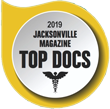Dr. Benjamin Lacy is a triple board-certified psychiatrist with more than two decades of experience treating substance use disorders and co-occurring psychiatric conditions in both adolescents and adults. At Recovery Keys, he brings a strong commitment to personalized, evidence-based care for individuals facing complex challenges related to addiction, trauma, and mental health.
Certified in General Psychiatry, Child and Adolescent Psychiatry, and Addiction Medicine, Dr. Lacy has delivered psychiatric care across a variety of clinical settings. His experience spans private practice, youth residential treatment programs, Veterans Affairs systems, and international healthcare roles in New Zealand. This diverse background allows him to develop thoughtful treatment plans that address both emotional and medical needs.
Known for his practical, evidence-based approach, Dr. Lacy is especially passionate about empowering clients with education and tools that support long-term healing. Whether working with young adults, families, or professionals, he believes deeply in treating people, not just diagnoses.
Dr. Lacy earned his medical degree from the Uniformed Services University and completed residency and fellowship training at Tripler Army Medical Center. Throughout his career, he has served as a medical director, clinical consultant, and educator, providing instruction to clinicians, therapists, and law students on subjects ranging from psychopharmacology to trauma recovery and dual diagnosis care.
He is a Fellow of the American Psychiatric Association, a member of the American Society of Addiction Medicine, and an active participant in the Florida Psychiatric Society. Dr. Lacy’s published work includes articles in peer-reviewed medical journals and legal health publications on topics such as antidepressant safety, PTSD, and cannabis-related psychiatric effects.
Dr. Lacy’s approach to care is grounded in collaboration, trust, and empathy. He believes that effective treatment begins with listening, and that lasting recovery happens when clinical expertise is paired with compassion and respect for each individual’s path forward.






















